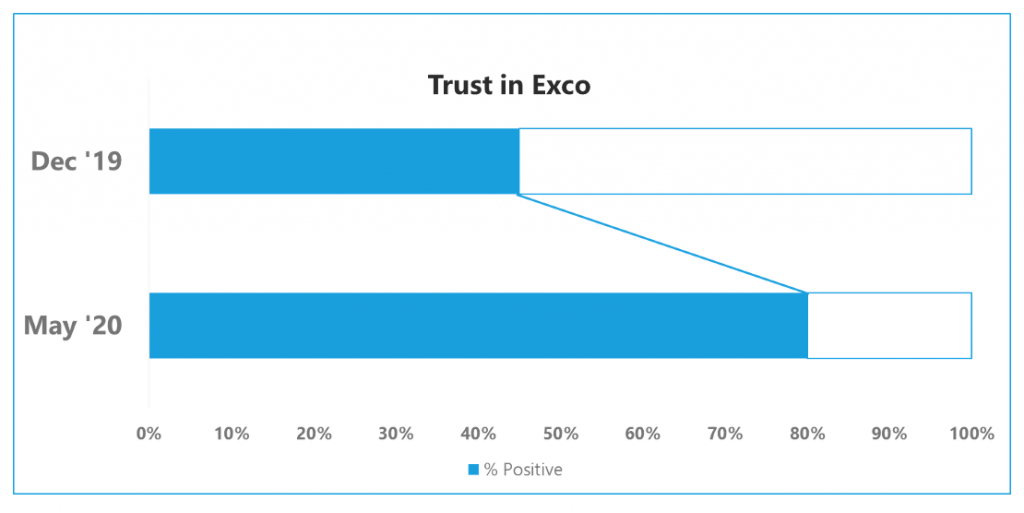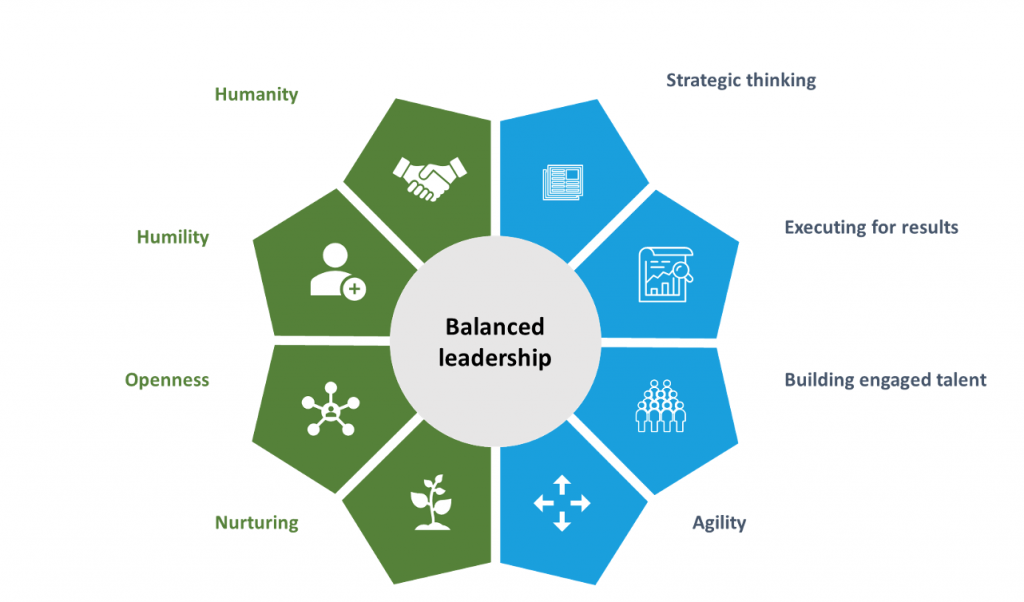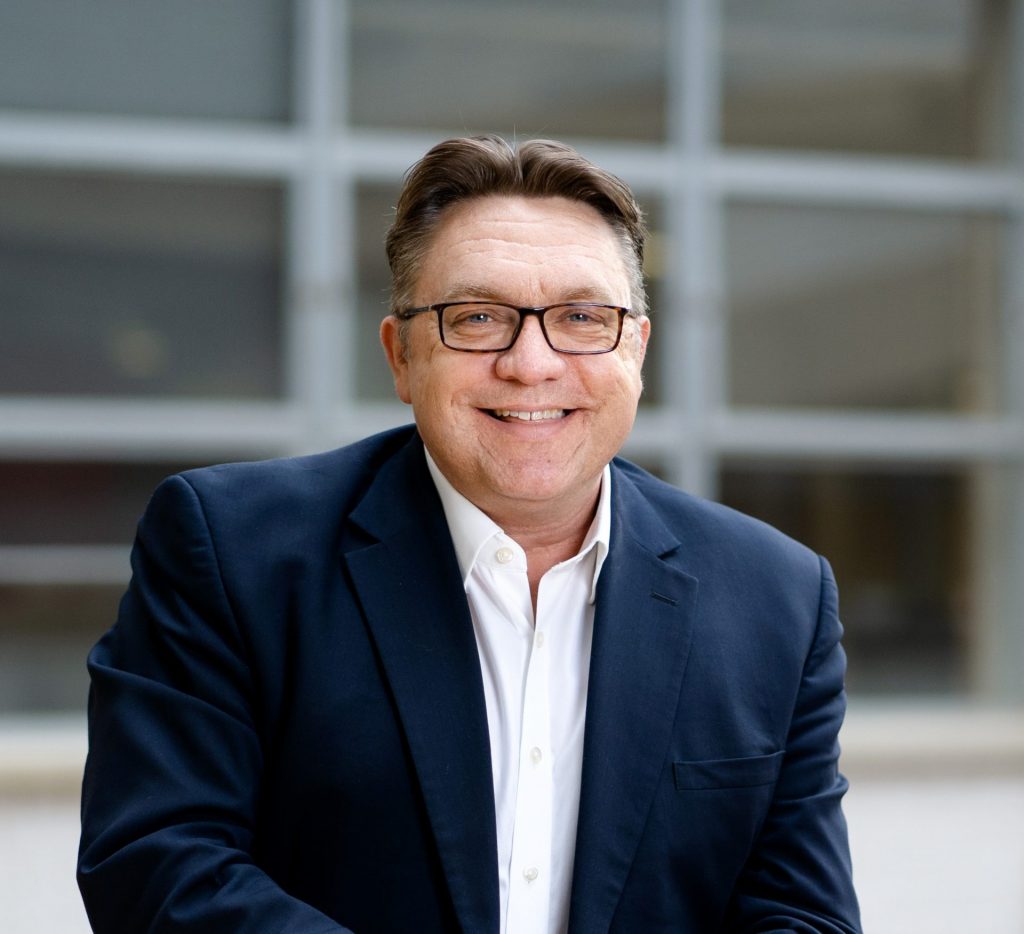Global crises bring great leaders to the surface. They also change the very definition of leadership itself, says Andy Brown
If you think about Roosevelt in the midst of the Great Depression (‘The only thing we have to fear is…fear itself. We must act and act quickly,’) or Churchill in the face of the Nazis in the second World War (‘We shall not fail or falter; we shall not weaken or tire’), you’ll see that crises bring some leaders to the top of their games.
By contrast, other leaders crumble.
BP’s former CEO, Tony Hayward is a case-in-point. As BP faced huge losses following the Deepwater Horizon explosion and resulting oil spill in the Gulf of Mexico, he wanted ‘my life back’, rather than admitting the company did wrong and would strive to put things right.
The coronavirus pandemic is no different. Within just a few weeks of its outbreak, what leaders first described as crisis management is now their ‘new normal’. The organisational implications of this are far reaching – how we work, how we manage and how we engage must all evolve.
But the leadership implications are stronger still. The ability of businesses to survive, develop and thrive rests on how leaders respond to all of the above. And that means redefining the pure-play model of leadership – based on business outcomes and KPI metrics – that we’ve worked from over the past 20 years.
Humanity is now business-critical
The human and individual impact of Covid-19 has had a direct effect on organisations across sectors, geographies and demographics. This has forced leaders to re-focus their efforts on the human aspect of their business.
As wellbeing and safety have become the primary concerns for employees, leaders who have demonstrated traits such as humanity, humility, listening and transparency have thrived.
These leaders have created huge amounts of goodwill among their employees, and have built trust in their leadership teams, both of which have been key drivers for morale, engagement, productivity and adaptability over the past four months.
In a 2020 McKinsey and Co US survey entitled ‘COVID-19 and the employee experience: How leaders can seize the moment’, 80% of respondents indicated that leadership had acted proactively to protect their health and safety. Our own research reveals similar attitudes. The case study data below show that one ExCo has managed to almost double trust levels during the crisis:

As we navigate through and beyond the crisis, human or ‘soft’ traits will continue to be hugely important, and leadership models must change to reflect this. Expected behaviours will need refreshing and the factors on which we select leaders, promote them and reward them will need to shift.
Leaders need to be able to make mistakes and change direction while maintaining trust and confidence, and it is the introduction of elements such as humanity, humility, openness and listening that will create a more balanced approach to leadership in this new world.
So how do we redefine leadership for the ‘new normal’?
Leadership needs a redesign
Organisations need to ask three key questions: How suited is your current leadership framework for the new normal? Do you need to adjust your leadership ‘signature’ (the unique combination of styles that leaders can combine to be effective)? And are leaders themselves involved in this redefinition?
This isn’t an exercise that can be performed in a vacuum. It needs to sit within a framework of strategic evaluation that questions how effectively leaders connect their employees with organisational purpose, vision and strategy.
That’s because successful leaders in the new normal must have the skills to communicate with and connect to employees, so that people at every level are engaged to play their part. In the ‘new normal’, this human side to leadership is particularly critical if leaders are to bring their people with them in uncertain and testing times.
A great example here is the ability to listen. While many leaders excel at communicating in ‘broadcast’ mode, those who are proving most effective through the crisis have switched heavily into listening mode. Two relatively new CEOs prove the point.
Penny James had only become CEO at our client Direct Line Group, the FTSE 100 insurer, in May 2019. The pandemic hit less than a year later.
Her reaction? She and her ExCo have spent many hours in direct conversations with employees, listening to their concerns about the crisis, the rapid need to shift to home-working and their concerns about a possible future return to the workplace.
Alongside rapid-fire pulse surveys conducted on a fortnightly basis in partnership with ENGAGE, the listening approach has helped James and her team to build a strong balance for DLG’s people between feeling safe personally and staying productive professionally.
Similarly, John Donahue joined Nike as President and CEO in January 2020. He spent his first three months in role on a ‘Listening and Learning Tour’, having around 150 individual conversations across the organisation. This listening approach proved to be vital as the pandemic hit.

Leaders that have successfully led their organisations through the crisis have shown they already follow a leadership model that not only balances the hard ‘business’ and softer ‘human’ elements, but that also focuses on continual engagement with vision and strategy – however fast-changing that may be.
Traditional leadership frameworks, typically based around big picture thinking, a focus on results and building high potential, are not enough to drive success when entire economies are being impacted by human catastrophe. They also aren’t capable of providing the short-term adaptability and agility that is needed to navigate through a daily-changing business landscape.
But having the right traits is just one contributor to successful long-term, post-crisis leadership. Behaviours – externally-showcased actions – are equally critical.
Behaviour will drive organisational success
Those organisations that have shown resilience and success through the crisis have also demonstrated a core and common set of leadership behaviours that have put them in the best position to survive the daily changes to their business.
And, once again, those behaviours are rooted in human rather than business criteria. They include:
- Being visible and available
- Communicating through regular check-ins and two-way dialogue, not one-way broadcast
- Listening – authentically, and acting on what employees, customers and stakeholders are saying
- Being open and honest, and admitting when they don’t have all the answers
- Being candid and clear, and communicating change quickly, as well as sharing good news whenever possible.
Underpinning all of these behaviours is the ability to stay focused on what matters most. Among our own highest performing clients, the common theme has been keeping their stakeholders safe as their single, guiding ‘North star’.
Looking after your people, customers, clients, communities and any broader stakeholders shows a depth of purpose and real EQ amongst leaders. This can also help to create a stronger sense of team amongst your people and galvanise them around a bigger purpose during the crisis.
This has been exemplified by our client Andy Roe, The London Fire Commissioner. Having only been in post since early January, 2020, the pandemic struck in the middle of his drive for a major transformation programme through the London Fire Brigade (LFB).
With LFB’s 5,000 firefighters and support staff needing to keep working throughout the crisis as key workers, Roe had to prioritise how he kept his employees as well as the communities of London safe. He has used a variety of approaches to understand how to best keep the organisation working effectively: virtual all-employee forums; the introduction of an employee app; and regular fire station visits to understand the operational challenges at the frontline.
To help ensure the safety of communities across the city, LFB established a blue-light partnership with the London Ambulance Service, with firefighters helping to drive ambulances and assist paramedics at the peak of the crisis. Roe also encouraged LFB employees to work with the London resilience Forum to help deliver over 10 million pieces of PPE to frontline health and social care workers across the capital.
Carol Tome assumed the role of CEO at UPS on 1 June, 2020, right in the midst of the pandemic. When asked what she had set as a priority on taking up her role, she replied: ‘How to keep our people safe. We have 400,000 people handling parcels and moving 3% of the global GDP every day. Their safety was paramount to me. We also changed our operating procedures to keep our customer safe – for example dropping the need to get a signature for a parcel.’
The new great leaders
We have seen through countless historical examples that change is a catalyst for the emergence of true leaders. Post-crisis, those true leaders will be the ones who focus on the most critical values and behaviours for success in a permanently altered future.
Great leaders in the new normal will question what’s really important. They will guide their organisations to deliver what they know their customers and stakeholders want – rather than what they think they need – by listening, through conversations and effective ‘employee voice’ tools such as surveys, pulses and apps.
They will understand that new rules of engagement are needed with their workforce, and that those rules are based on new considerations around health, safety, wellbeing and flexibility.
And they will know that employees’ and customers’ behaviours have changed – some permanently – and will have the human skillset needed to address this.
Leaders who successfully steer their organisation out of the crisis will retain all of the harder business capabilities from the past. But they will also excel at the skills that they need in a new normal: focusing on purpose, being human, actively listening, being transparent, learning fast and staying energised. These will be the new great leaders that may one day be cited in the history books.
Andy Brown is the Co-founder and CEO of ENGAGE. He has worked for ENGAGE since 2008 and, in 2013, co-led an MBO of the firm.
Andy leads all of ENGAGE’s strategic work with senior executives and heads the Leadership practice. He works mainly with CEOs, Boards and Executive teams in FTSE 100 and Fortune 500 firms as well as with fast growing entrepreneurial start-ups.

Prior to this, Andy has worked in the research and consulting industry for 25 years. He was previously a Partner at Mercer Consulting, a Global Practice Leader at The Empower Group (the strategic consulting division of Manpower), Managing Director of YouGov Consulting and Head of Research at The Gallup Organization.
Andy holds a doctorate in survey analytics from the University of Oxford where he also obtained his undergraduate degree in PPE and an MSc. in sociological research and statistics. He has also been a Visiting Fellow at Harvard University.



